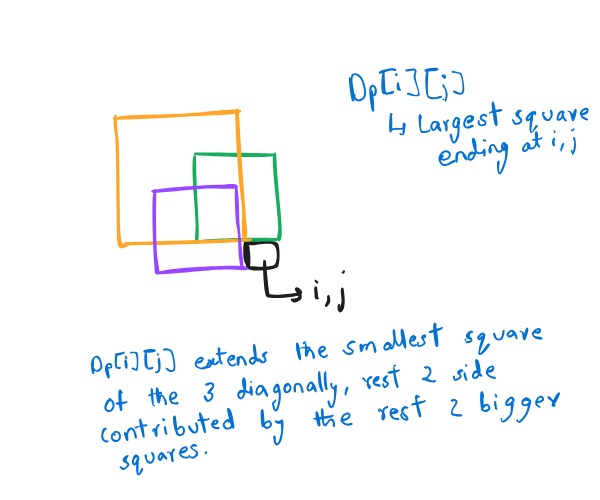
This problem asks us to find the largest square containing only 1s in a binary matrix.
A brute-force approach would involve checking every possible square, leading to high time complexity.
Instead, we use dynamic programming where dp[i][j] represents the size of the largest square
ending at cell (i, j). The image above explains the intuition of the solution.
Here is the pseudo-code that solves this problem.
for(int i = 0; i < n; i++) {
for(int j = 0; j < m; j++) {
if(matrix[i][j] == '1') {
if(i == 0 || j == 0) {
dp[i][j] = 1;
} else {
dp[i][j] = min({dp[i-1][j], dp[i][j-1], dp[i-1][j-1]}) + 1;
}
ans = max(ans, dp[i][j]);
} else {
dp[i][j] = 0;
}
}
}
dp table gives the side length of the largest square, and squaring it gives the area.